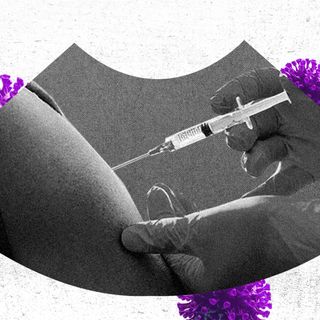India’s health ministry issued a statement last evening, clarifying yet again that Covid19 vaccines do not cause infertility in either males or females population.
“In order to curb the prevalent myth regarding infertility due to Covid19 vaccination, the government of India has clarified that there are no scientific evidences suggesting Covid19 vaccination can cause infertility in men and women,” the statement read, adding that “vaccines have been found to be safe and effective.”
In fact, doctors from around the world have been trying to bust this myth for many months now. “There is no biologically plausible mechanism by which current vaccines would cause any impact on women’s fertility. Evidence has not been presented that women who have been vaccinated have gone on to have fertility problems,” Dr. Edward Morris, president at the Royal College of Obstetricians and Gynecologists in the U.K., told CNBC.
In the middle of a deadly, global pandemic, such misinformation can prove fatal, especially since it can sway public opinions about being vaccinated.
Related on The Swaddle:
Vaccinate Pregnant Women, New Mothers To Address Rising Covid19 Cases: ICMR
Unfortunately, the trend of misinformation around vaccines isn’t new. “Such misinformation and rumors were observed to be spreading in the community during the vaccination drives earlier too, e.g., [during] polio and measles-rubella [vaccination drives],” the ministry noted in its statement.
In fact, reports suggest that rumors about the polio vaccine causing infertility affected the immunization drive in Nigeria — resulting in the country being the last among all African nations to be declared free from the disease in 2020.
Reports suggest that the root of the misinformation surrounding Covid19 vaccines may lie in the misinterpretation of a U.K.-government guideline, which had noted that it was “unknown” whether the Pfizer vaccine had an impact on fertility. However, the guidelines were later updated to reflect that studies conducted since had found no adverse effects on fertility. Although the Pfizer vaccine isn’t even available in India yet, unfortunately, the initial misinterpretation appears to have lingered. “The way scientists describe things and how the public understand[s] it, without any additional explanation, can often lead to panic,” Sangeeth Sebastian, a senior journalist from New Delhi, wrote in March.
“I am sure the people hearing these stories are not necessarily anti-vaccine themselves. But I think the instigation for them comes from groups who don’t have great motives, and maybe not a great grounding in science,” says Dr. Cliona Murphy, a gynecologist from Ireland.
Interestingly, experts believe that the novel coronavirus itself, like any other viral infection, may negatively impact testicular function, leading to a temporary decline in the sperm count of infected males. “Men who are worried about their fertility should probably get the Covid19 vaccine,” said Dr. Albert Hsu, a reproductive endocrinologist from the U.S., who has been studying the impact of the pandemic on male fertility.
More importantly, vaccines protect people from severe Covid19 infections. “We encourage people very strongly to get vaccinated … both for their own safety, for the safety of their family and ultimately for the safety of their community and their country … because the larger proportion of people that get vaccinated, the more quickly you will get the epidemic and the pandemic under control,” said Dr. Anthony Fauci, American physician-scientist and immunologist.




